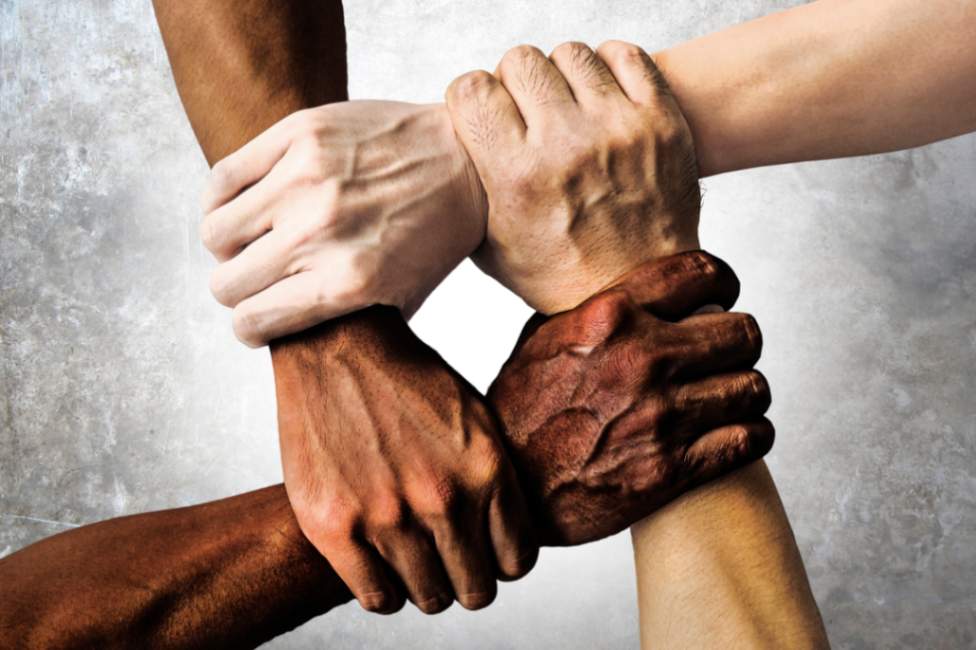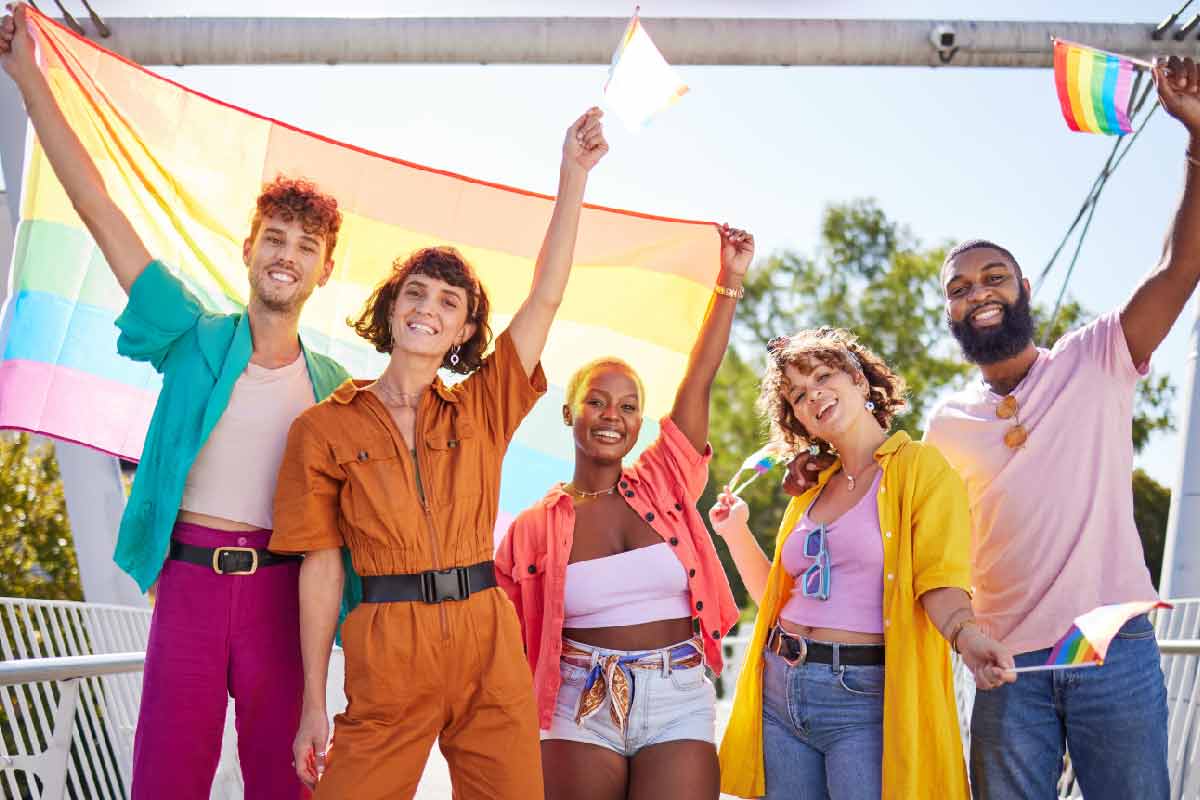June 27, 2022
Caring for Yourself While Living in a Non-Affirming Environment
Written by Rachel Eddins
Posted in LGBTQ + Multicultural Concerns and with tags: LGBTQ
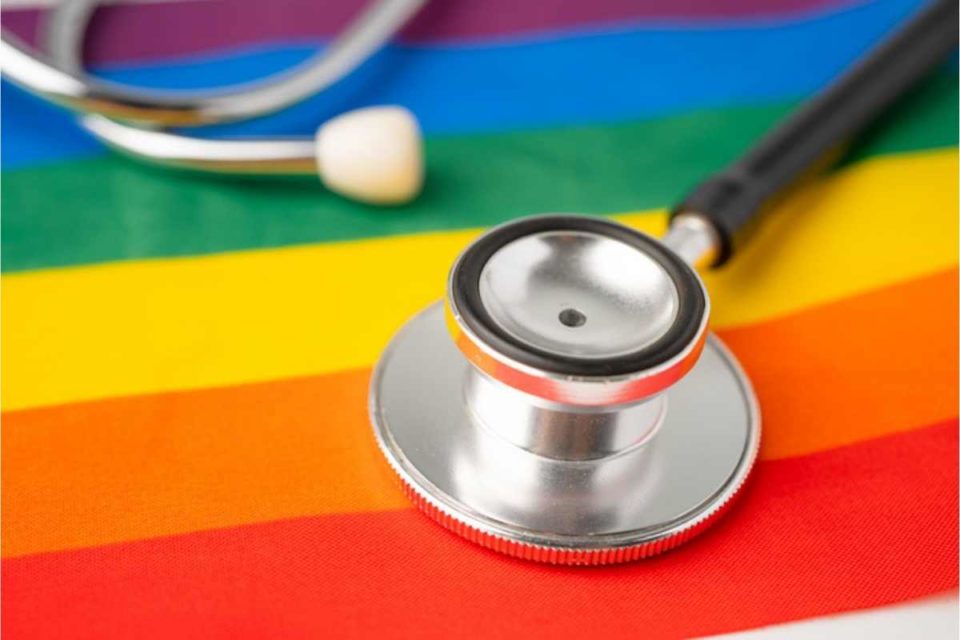
We live in a strange time of awareness and conflict. Bitter divisions exist within nations, states, towns, communities, and families.
In such a climate, it is not unusual for an LGBTQIA+ individual to encounter a non-affirming environment.
This reality can result in so many different situations. In the best-case scenario, it starts a conversation. Micro-aggressions could be the norm in other instances. Finally, of course, toxicity could rule the day.
Then what? How do you care for yourself in an environment that offers no care to you? This is a big topic, but it’s important to address it as much as possible.
What is a Non-Affirming Environment?
The simplest way to describe this is to define the opposite. An affirming environment is one in which the people involved accept and affirm the identities of those who identify on the LGBTQIA+ spectrum.
Non-affirming, in other words, can range from lack of awareness to downright hostility. Obviously, there are significant differences in this range. However, despite the reception, a non-affirming environment, in any capacity, poses a risk to the individual.
Why is an Affirming Environment Important?
Places that are welcoming and individuals who don’t make assumptions help create a safe space. Without such factors, stress increases, as do mental health problems.
We could start with research that shows how LGBTQIA+ youth experience a 35 percent decrease in suicide attempts within an affirming environment.
Unfortunately, discovering affirming environments is not easy. Thus, it becomes essential for all those in the LGBTQIA+ community to develop some fundamental self-care skills.
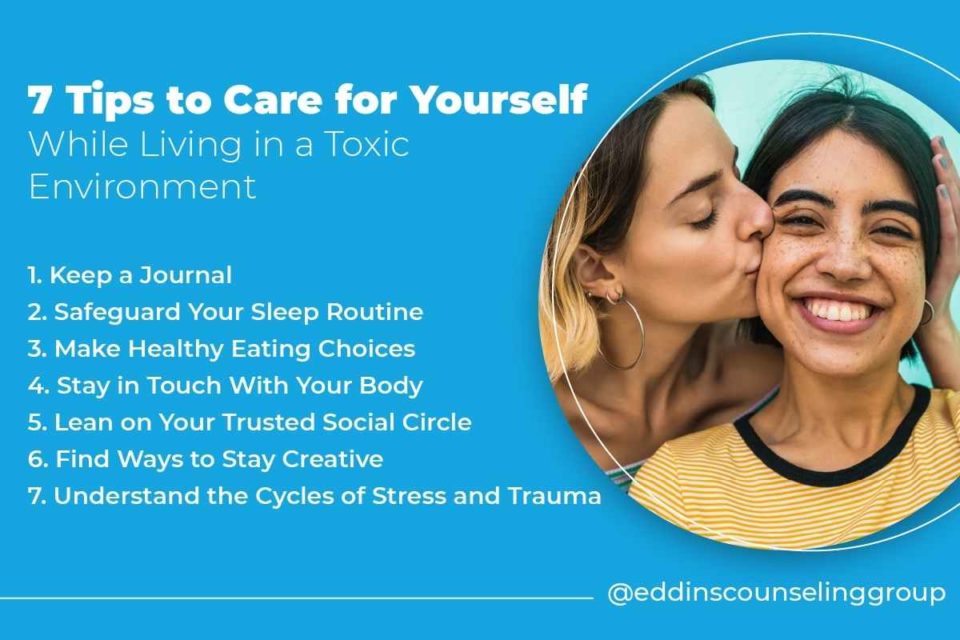
How to Care for Yourself While Living in a Toxic Environment
Of course, any advice given on this topic is non-specific. If you find yourself in an abusive or dangerous location, you will likely need more than self-care. Finding resources to help you as soon as possible are necessary.
In cases where acceptance is lacking, but you can navigate it safely, self-care is most effective now. To follow are some suggestions:
- Keep a Journal: It can be so helpful to put pen to paper. Describe what you’re experiencing and how you’re feeling. Identify triggers. Also, make note of whatever makes you feel gratitude. This can offer valuable balance in very tough times.
- Safeguard Your Sleep Routine: To the best of your ability, get enough sleep while maintaining a somewhat steady sleep schedule.
- Make Healthy Eating Choices: Binging, forgetting to eat, or choosing comfort foods might feel tempting. Resist these urges and stay properly fueled.
- Stay in Touch With Your Body: Movement is crucial. Choose what works for you, e.g., yoga, dance, exercise, and more. It will also help you sleep at night.
- Lean on Your Trusted Social Circle: Do not isolate. Use your devices to reach out to those you trust. Get reassured and supported when you need it most.
- Find Ways to Stay Creative: Consider this self-care for the soul. Indulge your creative side to provide solace as you endure some of the outcomes of a divided culture.
- Understand the Cycles of Stress and Trauma: If you feel your mental well-being is shaky, learn more about what’s going on. Recognize when you need to reach out for help. Find LGBTQIA+ mental health resources that are compatible with you.
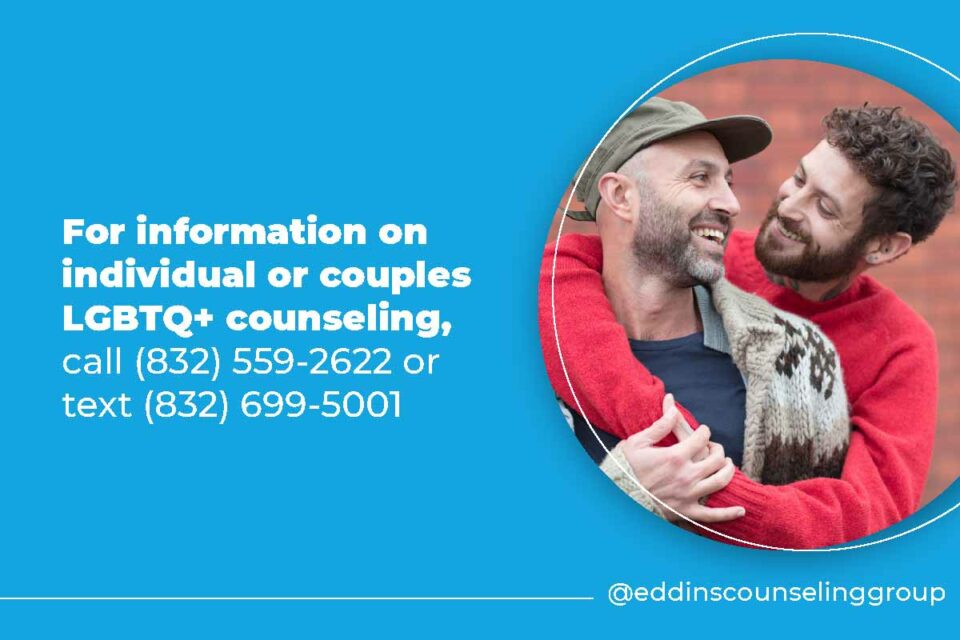
Support and Help Are Available
In this time of virtual everything, you are never out of range of help. An affirming therapist is just a phone call or video chat away. You do not have to suffer in silence. You should not suffer in silence.
If you feel you need help or have reached a breaking point, let’s talk as soon as we can.
We offer both LGBTQ+ individual and couples therapy.
To get started with an Eddins Counseling Group therapist in Houston, Montrose, or Sugar Land, call (832) 559-2622 or text (832) 699-5001 us today!
Additional LGBTQ+ Resources
- Webinar: Coming Out as a Process
- Webinar: PRIDE – Providing Resources, Information, Demystification, and Education to Be a Supportive LGBTQ+ Ally
- Webinar: SOGIE 101 (Sexual Orientation, Gender Identity, and Expression)
- Overcoming the Mental Health Challenges That Face The LGBTQIA Community
- Why Finding an LGBTQ+ Friendly Therapist is Important
- Benefits of LGBTQ+ Relationship Counseling in Texas
- Benefits of LGBTQ+ Counseling and Exploring Sexual Orientation Through Therapy
- Caring For Yourself While Living in a Non-Affirming Environment
- Eight Ways to Explore Your Pride During Pride Month
- LGBTQ Pride: Meanings, Definitions and Being an Ally
Additional Information on our Trauma Services:
7 Mood-Boosting Tips
Get instant access to your free ebook.

